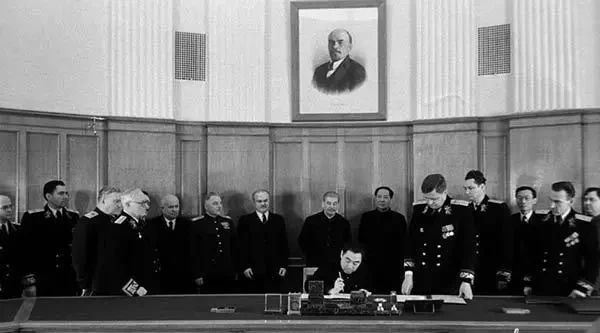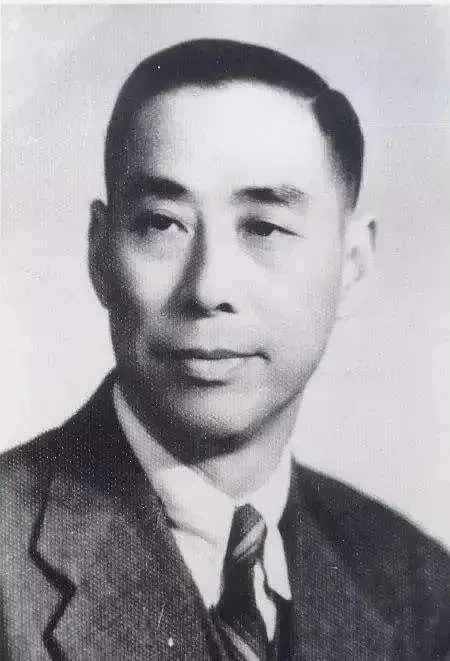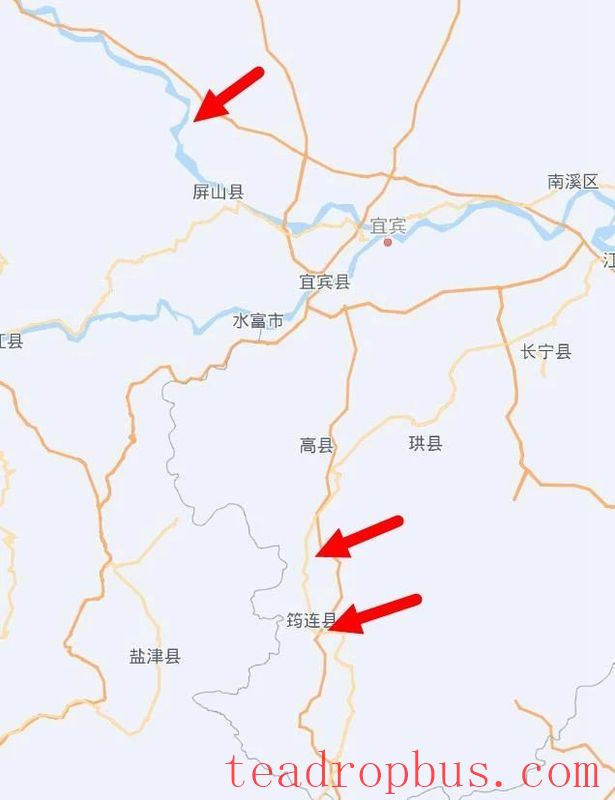On October 1, 1949, the People's Republic of China was officially founded. At the time, the new China was described as impoverished and in dire need of reconstruction. On December 9, 1949, Chairman Mao Zedong visited the Soviet Union for friendly exchanges to secure support for accelerating the construction of the People's Republic of China. On January 10, 1950, Premier Zhou Enlai led a Chinese government delegation to Moscow. On February 14, as the Chinese representative, Zhou Enlai signed documents including the “Treaty of Friendship, Alliance, and Mutual Assistance Between China and the Soviet Union,” and the “Agreement on the Soviet Loan to the People's Republic of China” with Soviet Foreign Minister Vyshinsky. China received a loan of 1.2 billion new rubles, equivalent to $300 million (900 million RMB).

Signing scene of the Sino-Soviet agreement
The burden of repayment was immense given the weak state of the nation at the time. This became even more challenging after the outbreak of the Korean War on June 25, 1950, followed by China's participation in the Korean War in November 1950. Amidst these circumstances, repaying the loan was an arduous task. The Soviet Union required China to repay the loan not only with strategic materials such as tungsten, antimony, lead, and tin but also specifically with black Tea, which was popular among the Soviets. As a result, the development of the Black Tea industry became a top priority for repaying the loan. On November 23, 1949, the China Tea Import and Export Corporation was established in Beijing, with Wu Jue-nong, then deputy minister of agriculture, serving as general manager.

Wu Jue-nong (1897-1989)
Wu Jue-nong (1897-1989), from Shangyu, Zhejiang, was the first Chinese student to study tea professionally abroad in Japan. After returning home, he dedicated himself to revitalizing China's tea economy and maintaining its reputation in international markets. During the Anti-Japanese War, Wu Jue-nong was responsible for the tea production and sales work of the government's Trade Committee. After the fall of Shanghai, China's largest tea export market, he worked hard to expand tea trade and revive tea production in regions that had shrunk. He processed the scattered tea leaves collected from rural areas across various provinces into finished tea boxes. In 1938 and 1939, China's tea exports ranked first among all export commodities, exceeding the terms of barter agreements and securing foreign exchange to support the economy during the war. In 1940, Wu Jue-nong established the Department of Tea Studies at Fudan University (then located in Beibei, Chongqing), which was the first tea-related department in higher education institutions in China. The first batch of 28 students came from all over the country and were referred to as “Wu's disciples.” Wu Jue-nong later served as honorary chairman of the Chinese Society of Agricultural Science and the Chinese Tea Society and was honored as the “Modern Sage of Chinese Tea.” At the time of the establishment of the China Tea Import and Export Corporation, apart from Anhui's “Qihong,” the production of Yunnan's “Dianhong,” Jiangxi's “Ninghong,” and Fujian's “Minhong” was relatively small. Wu Jue-nong, tasked with developing the industry, decided after careful consideration to focus on the development of black tea in Jiangxi and the southwestern region. Some of “Wu's disciples” thus went to the southwest to vigorously develop black tea production.

Trademark of the China Tea Corporation
On July 1, 1950, the Southwest Branch of the China Tea Corporation was established in Chongqing, with Xiong Sen, one of “Wu's disciples,” serving as the head of the business department of the Southwest Tea Corporation, responsible for the main business in the southwest region, undertaking the promotion of black tea. Immediately upon its establishment, the Southwest Branch began to convert the Green Tea produced in Sichuan, Yunnan, and Guizhou into black tea to meet the urgent needs of the country. After selecting key production areas, the Southwest Branch set up seven black tea promotion stations in Yibin's Junlian County, Gao County, and Yibin County in the Yibin area; in Wanyuan County (now Wanyuan City in Dazhou) in the Dazhou area; and in Renhuai County (now Renhuai City in Guizhou) and Chishui County (now Chishui City in Guizhou). They were as follows:
First Station: Junlian County Black Tea Promotion General Station, with Dai Xin-yong as station master;
Second Station: Luo Field Black Tea Promotion Station in Gao County, with Dai Xin-yong as station master;
Third Station: Ancient Cypress Village Black Tea Promotion Station in Yibin County, with Xu Ce as station master;
Fourth Station: Qingxi Village Black Tea Promotion Station in Wanyuan County, with Ren Sheng-hui as station master;
Fifth Station: Maotai Town Black Tea Promotion Station in Renhuai County, with You Pi-zhou as station master;
Sixth Station: Baiyang Temple Village Black Tea Promotion Station in Wanyuan County, with Ren Sheng-hui as station master;
Seventh Station: Huangjing Village Black Tea Promotion Station in Chishui County, Guizhou, with Qian Kepei as station master.

Schematic diagram of the three black tea promotion stations established in Yibin, starting from the bottom: First Station Junlian, Second Station Luo Field in Gao County, Third Station Ancient Cypress in Yibin County
Of the seven black tea promotion stations, three were located in Yibin. Starting from February 1951, Junlian County, Luo Field in Gao County, and Ancient Cypress in Yibin County began promoting the production and processing of black tea. After several years of promotion, the first, second, and third stations successfully produced “Sichuan Black Tea” and developed the black tea industry. However, the fourth to seventh stations ceased their promotion work due to various reasons.
The Story of Yibin's Sichuan Black Tea:
Part One: The History of Tea Production in Yibin Before the Ming Dynasty
Part Two: Records of Yibin's Tea History in the “Ming Shilu” (Veritable Records of the Ming Dynasty)
Part Three: The Emergence of the Prototype of “Sichuan Black Tea”
Part Seven: The Establishment of the Yibin Tea Factory
If there are any copyright issues, please contact us for deletion.